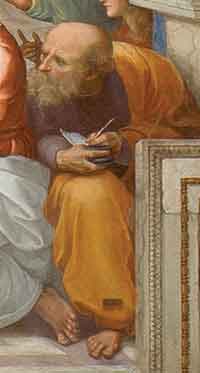Evolution: an ancient pagan idea

While studying ancient history at University, I came across the pagan beliefs about origins. It was this study that caused me first to question evolution and the vast ages given for the Universe. It was later, after many years of scientific investigation, that I finally broke free from a liberal understanding that sought to harmonise naturalism with biblical Christian faith.
The Greeks
As I read the works of the Greek philosophers, who lived between about 600–100BC, I was amazed to discover primitive evolutionary theory and vast ages long before Darwin and modern assumptions. The fragments of Anaximander (c. 610–546 BC) taught that ‘humans originally resembled another type of animal, namely fish.1 There was Democritus (c.460–370BC) who taught that primitive people began to speak with ‘confused’ and ‘unintelligible’ sounds but ‘gradually they articulated words.’2 Epicurus (341–270BC) taught that there was no need of a God or gods, for the Universe came about by a chance movement of atoms.3
After them, the Roman naturalist Pliny the Elder (AD23–79) said, ‘ … we are so subject to chance that Chance herself takes the place of God; she proves that God is uncertain.4
Concerning the great ages of the Universe, Plato and many Greek philosophers held to the view that this present Universe came about millions of years ago. Lactantius, writing in the fourth century AD, said:
‘Plato and many others of the philosophers, since they were ignorant of the origin of all things, and of that primal period at which the world was made, said that many thousands of ages had passed since this beautiful arrangement of the world was completed … ’.5 (An ‘age’ here is 1,000 years.)

0 Comments